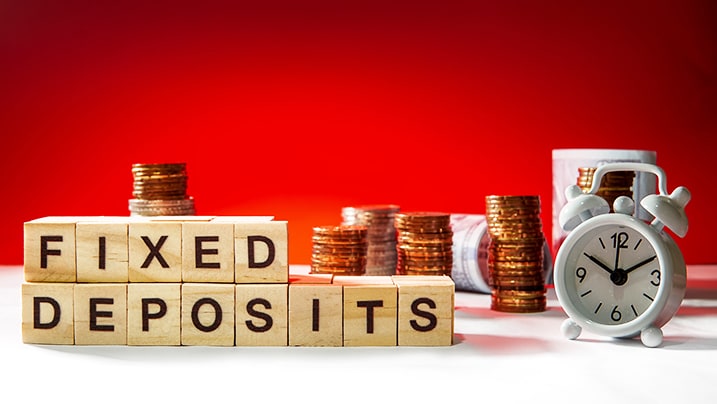The world of investments can be quite overwhelming, especially with the myriad of terms one has to apprehend. One fundamental term that every investor should familiarize himself/herself with is FD. With so much talk circulating about FD in the financial market, you may have found yourself questioning, what exactly is the FD full form?
What is a Fixed Deposit?
FD stands for Fixed Deposit in the world of finance. It’s a financial product made available by banks and non-banking financial companies (NBFCs) wherein an investor deposits a certain amount of money for a specific period, typically at a predetermined rate of interest. Essentially, an investor lending money to the bank for a pre-decided duration is what an FD implies. The bank pays an interest amount on the money deposited based on the duration and terms of the deposit.
Understanding FD is crucial given its distinctive characteristics. It is one of the safest forms of investment, guaranteeing a fixed rate of interest that doesn’t fluctuate with market changes. The longer you stay invested in an FD, the higher the interest returns.
Types of Fixed Deposit
There are distinct types of Fixed Deposit; the nature of these types is primarily dictated by the term of the deposit and the rate of interest promised. The most common types are regular FDs and tax-saving FDs. Regular FDs provide investors with flexibility in terms of deposit term, which can range from 7 days to 10 years in India. On the other hand, the lock-in period for tax-saving FDs is fixed at five years but offers tax benefits under Section 80C of the Income Tax Act.
Another type of fixed deposit is the cumulative FD wherein the interest is compounded quarterly or annually and paid at the time of maturity along with the principal amount. Non-cumulative FDs, in contrast, offer investors the option to receive the interest on a regular basis— monthly, quarterly, half-yearly, or annually.
Fixed Deposits (FDs) are one of the most popular and secure investment options in India, offering fixed returns over a specified period. There are several types of Fixed Deposits, catering to different financial needs and goals:
- Regular Fixed Deposit: This is the most common type of FD, where you invest a lump sum for a specific period and earn a fixed interest. At the end of the tenure, both the principal and interest are paid out.
- Tax-Saving Fixed Deposit: These FDs have a lock-in period of five years and offer tax deductions under Section 80C of the Income Tax Act. However, premature withdrawals are not allowed.
- Senior Citizens Fixed Deposit: Specially designed for individuals above 60 years, this FD offers a higher interest rate compared to regular FDs, providing a more secure income stream during retirement.
- Cumulative Fixed Deposit: In this type, the interest is compounded annually and paid at the end of the tenure along with the principal amount, offering better returns over time.
- Non-Cumulative Fixed Deposit: Here, the interest is paid out periodically (monthly, quarterly, or annually), making it a good option for those seeking regular income.
Each type of FD caters to different needs based on risk tolerance, liquidity, and financial goals.
Example
To explain it better, let’s consider an example. If an investor deposits 1,00,000 INR in a regular FD for a year at an interest rate of 7%, at the end of the year, he/she will receive 1,07,000 INR, the principal amount plus the interest (1,00,000*7/100).
In contrast to other risky investment options, fixed deposits ensure that your capital is safe, and you receive a fixed return. Nevertheless, it’s essential to remember that there are penalties for early withdrawal of the deposit and the interest you earn is taxable.
Coming to the disadvantages, the primary drawback of fixed deposits is their inability to beat inflation. The return on FDs is often lower than inflation, which implies your money loses value in real terms. Moreover, the interest rates are lower compared to other market-based investment options like equity.
Disclaimer: The investor must meticulously consider all the pros and cons of trading in the Indian financial market. While FDs are generally considered safe, the returns might not be as high as those offered by riskier investment options.
Summary:
In the realm of finance, FD stands the full form for Fixed Deposit. It is a safe form of investment where you lend a certain amount of money to a bank or non-banking financial companies (NBFCs) for a specified period at a predetermined interest rate. There are different types of fixed deposits like regular FDs, tax-saving FDs, cumulative FDs, and non-cumulative FDs. While FDs offer a safe haven for your funds with fixed returns, it’s crucial to remember that their inability to combat inflation and relatively lower interest rates compared to market-based options can make them less appealing. The investor must gauge all the pros and cons of trading in the Indian financial market.


